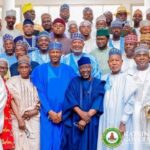CPC’s Political Bloodline: Who’s Next in Line?

The Nature of Power in the CPC
Unlike many Western democracies where leadership succession is often a public and competitive affair, the CPC maintains an opaque, top-down process. The leadership pipeline is cultivated over decades, often beginning at the provincial level, with party loyalty, technocratic competence, and strategic alliances playing pivotal roles. Though the CPC emphasizes meritocracy, familial and political lineage—the so-called “Red bloodline”—still holds sway in many corners of the party.
Red Aristocracy: A Political Legacy
The term “Princelings” refers to the children of former high-ranking CPC officials, many of whom are positioned to inherit influential roles. These individuals often receive elite education, both in China and abroad, and benefit from powerful political networks. President Xi Jinping himself is a prominent princeling, the son of Xi Zhongxun, a revolutionary veteran and former vice premier.
This elite group has long been groomed to uphold the party’s legacy, ensuring ideological continuity while navigating the demands of modern governance. Many believe that the CPC’s future may once again rest in the hands of these princelings or their allies.
Rising Stars: Who’s Being Groomed?
While no official succession plan has been publicly declared, several figures are emerging as potential heirs to China’s highest office.
Ding Xuexiang, a close aide to Xi Jinping and a member of the Politburo Standing Committee (PSC), is often seen as a potential successor. His loyalty to Xi and low-profile nature mirror past leaders who were elevated by their predecessors.
Hu Chunhua, once seen as a rising star and a possible premier, has seen his influence fluctuate, though he remains a figure to watch due to his experience in regional governance.
Li Qiang, current Premier and former party secretary of Shanghai, has risen quickly under Xi’s patronage, signaling trust and continuity. His role in managing major economic hubs gives him significant technocratic credibility.
These individuals reflect a new hybrid of CPC leadership—loyal to Xi, competent in governance, and flexible enough to adapt to both domestic and global challenges.
Xi Jinping’s Extended Tenure: A Shift in Succession Norms
Xi Jinping’s decision to abolish presidential term limits in 2018 marked a seismic shift in Chinese political tradition. For decades, the CPC followed an informal rule of leadership transition every ten years, intended to avoid the cult of personality that marked Mao Zedong’s era. Xi’s consolidation of power suggests a break from that tradition, raising questions about whether a clear successor will be named during his tenure—or at all.
This ambiguity has both strategic and risky implications. On one hand, it reinforces Xi’s control and stability in the short term. On the other, it creates uncertainty around succession, potentially destabilizing in times of crisis or leadership transition.
What the Future Holds
The next generation of CPC leaders will inherit not just political power but a complex legacy: a slowing economy, tense international relations, an aging population, and a populace increasingly aware of its rights—even if muted by censorship.
Whether China’s next leaders will emerge from the red aristocracy or rise through party ranks based on merit remains an open question. What is clear, however, is that the CPC’s bloodline—both literal and ideological—will continue to shape the country’s trajectory.
In a system where continuity is prized and disruption feared, the true successor may not be the boldest or most visionary, but rather the most loyal, cautious, and pragmatic. In the CPC’s world, survival is the first qual
ification for power.
TRENDING SONGS
 NPMA Appeals to Nigerian Government for Compensation After Lagos Market Fire
NPMA Appeals to Nigerian Government for Compensation After Lagos Market Fire
 Rest Every Four Hours, FRSC Issues Safety Guide for Fasting Motorists
Rest Every Four Hours, FRSC Issues Safety Guide for Fasting Motorists
 NNPC Boss Ojulari Bags UK Energy Institute Fellowship
NNPC Boss Ojulari Bags UK Energy Institute Fellowship
 Shock in Anambra: Bride Disappears Moments Before Wedding
Shock in Anambra: Bride Disappears Moments Before Wedding
 Nigerian Woman Returns ₦330 Million Accidentally Credited to Her Account
Nigerian Woman Returns ₦330 Million Accidentally Credited to Her Account
 APC Don Reach Morocco?’ VeryDarkMan Reacts to Seyi Tinubu Poster
APC Don Reach Morocco?’ VeryDarkMan Reacts to Seyi Tinubu Poster
 Bride Breaks Down in Tears as Wedding Meals Were Kept Secretly While Guests Go Home Hungry
Bride Breaks Down in Tears as Wedding Meals Were Kept Secretly While Guests Go Home Hungry
 Odogwu by Day, Robber by Night: How Marriage Joy Turned Into Tragedy
Odogwu by Day, Robber by Night: How Marriage Joy Turned Into Tragedy
 Nigerian Officials Allegedly Pocket N4–6B Weekly Through Smuggling Cartels at Seme–Badagry Border
Nigerian Officials Allegedly Pocket N4–6B Weekly Through Smuggling Cartels at Seme–Badagry Border
 Ahmad Yerima: Naval Officer to Face No Sanctions After Clash with Wike – Matawalle
Ahmad Yerima: Naval Officer to Face No Sanctions After Clash with Wike – Matawalle
Share this post with your friends on ![]()













